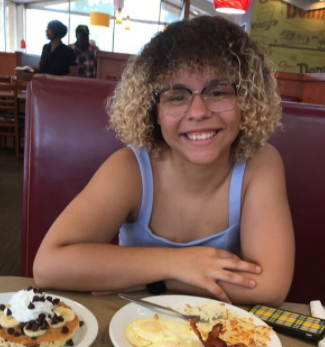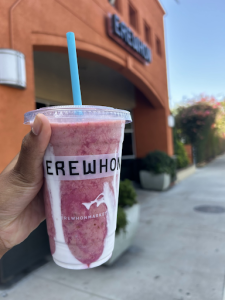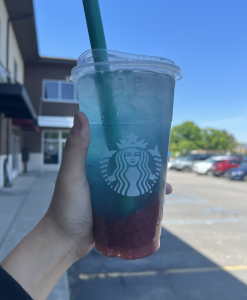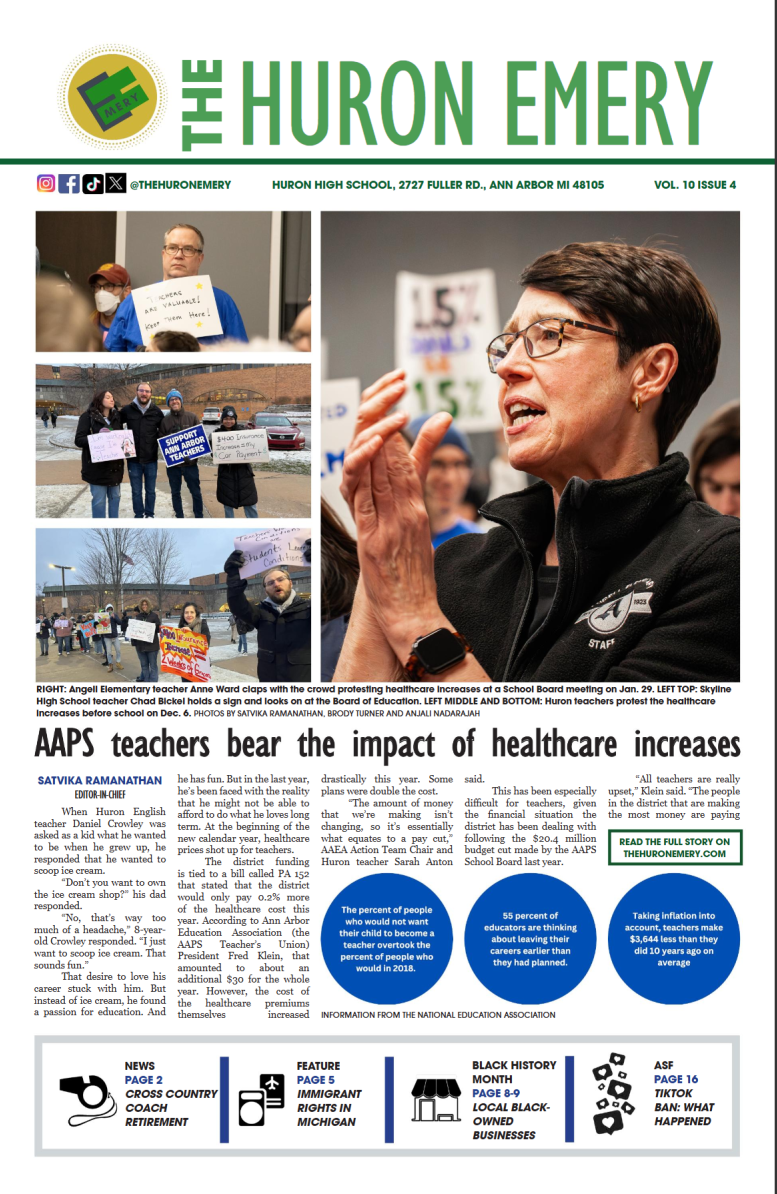Words hurt
The connotation of words is real
December 20, 2019
Ignorance is bliss, until the person who is blissful is no longer ignorant. Many people in our generation, including me, say things that are inappropriate and often offensive when we speak. We have learned to take the meaning from the word and transform it. We add it into a part of our vocabulary, when just a few years ago we were signing petitions to “Spread the Word to End the Word.”
It happened to me the other day, when my boyfriend and I were walking the streets of downtown Ypsilanti headed for the library. We do this almost every day so we can do our homework in a quiet place.
As we were crossing the street a man told my boyfriend to “stay with your own kind, or just flush your DNA.” We were both stunned! Interracial marriage was legalized by the U.S. Supreme Court in 1967, so why did this man have such a problem with two people being happy together? It shouldn’t matter if we are black and white, black and black, or white and white; love is love, and this is the free world.
When confronted with how our words may affect other people, we often retreat to telling someone that they are being too sensitive, that it is their fault that we hurt them. We deflect their feelings and go on with our lives. When people I know say the N-word, I openly express to and try to explain to them how them saying that word makes me feel as a black person. I also try to explain how that word was reclaimed by black people and how disrespectful it is when a non-black person says it. I get mixed responses but if someone won’t respect my request, that is not someone I will associate myself with again because of its harmful nature.
I have been on both sides. I have said things that are derogatory, like the R-word, even if I didn’t mean it that way. I have also had people use hate speech against me, both by people who meant every syllable and people who never meant to hurt me. I encourage everyone to speak up when someone says something that makes you uncomfortable.
Just recently, a student in our school got a video leaked on Snapchat of them saying the N-word. This student was Arab and not black. This deeply offended me and many other students. When I confronted the student, they refused to talk to me and went on to tell others that they would beat me up. By ignoring the problem, I felt this asserted racist culture through the power of the N-word, and its effects when used by a non-black individual to a black individual.
There’s a certain power dynamic when a person who is not black says the N-word. When a non-black person says the N-word or another racial slur, it feels outdated, like we’ve taken more steps back than we have taken steps forward as a society. We, as a society, have to come together to recognize the effects of hate language of all kinds. There is an illusion that hate speech is taboo, but some people are comfortable with using it. It makes others uneasy in certain circumstances, and we need to make sure we understand everyone’s perspective. We as a society must be more empathetic to other people’s feelings towards hate speech and recognize that the connotations surrounding it, to get a better look on how our words matter. We as a school can promote the effects of hate speech on us as a generation, as to influence the generation after us.











Jaden Leverett • Feb 24, 2020 at 9:31 am
I 100% agree, with the fact that people in our generation say things that can be insensitive about what that say. But a really important piece is that none of it is new. Stuff like this happened in the past, but because it’s not common knowledge to everyone, it just has repeated again in a more destructive way than before.
Elijah Vasquez • Feb 24, 2020 at 9:04 am
I found that this article purposes some ideas that have been published countless times now and some would even say that they are tired. However this article also brought light to some issues just out of view which is important. Overall I think we need more articles like this in Ann Arbor. It didn’t try to force any type of agenda on anyone and kept it’s opinions as they are “opinions.
Nikki • Feb 24, 2020 at 9:03 am
People defend their use of hate speech because people are becoming “too sensitive” and are taking things too seriously. But while using hate speech is almost certain to hurt or offend someone, NOT using hate speech hurts no one. We as a society need to learn how to be kind and sensitive to those who have been oppressed by words, instead of continuing to use hurtful and oppressive words that put others down. Be aware of your privilege!
Maya Keeney • Feb 24, 2020 at 8:58 am
I’ve seen things like this and I hear people say all the time that “it’s freedom of speech, I can say what I want!” But they often don’t seem to get that their freedom of speech doesn’t equal freedom from consequences, be it effects on others or on themselves due to their actions and words.
Rachel Salamone • Feb 24, 2020 at 8:58 am
I agree that words do hurt. I also agree that words stick to one and those hurtful words can stick. I remember reading that a study shows that hurtful words activate in the brains pain receptors from physical pain. Humans also tend to care too much of what other people think. People need to start thinking about what they say before they say it.
Katherine Niemi • Feb 24, 2020 at 8:11 am
I really like how you pulled in personal experience with hate speech to show that words do affect people. Many do not think before they speak, and believe their words do not have consequences. I agree that talking about the effects of offensive words at our school will help other generations to be more conscious of their word choices.
Catherine • Feb 24, 2020 at 8:06 am
I always thought that “sticks and stones may break my bones, but words will never hurt me” didn’t apply to everything. Obviously not all words are hurtful, but people need to recognize that some words like hate speech are innately so.
Serena Johnson • Feb 24, 2020 at 8:04 am
I agree. I feel like sometimes we as a society we need to take a step back and realize what we say and how it can effect the people around us and acknowledge the fact that sometimes we are wrong. I liked that you included a real life example and how you and your boyfriend felt afterwards. Even though the comment was harsh you put your best foot forward and are bringing attention to the situation!
Julie Park • Feb 24, 2020 at 8:04 am
I completely agree that people should be more sensitive about their word choice. In high school you constantly hear derogatory terms being thrown around. Most don’t use those offensive words with the intent to be hateful, but they are ignorant to the fact that words are not “just words.” Thank you for sharing your story.
Quinn • Feb 24, 2020 at 8:03 am
Great piece, I like the call to action at the end